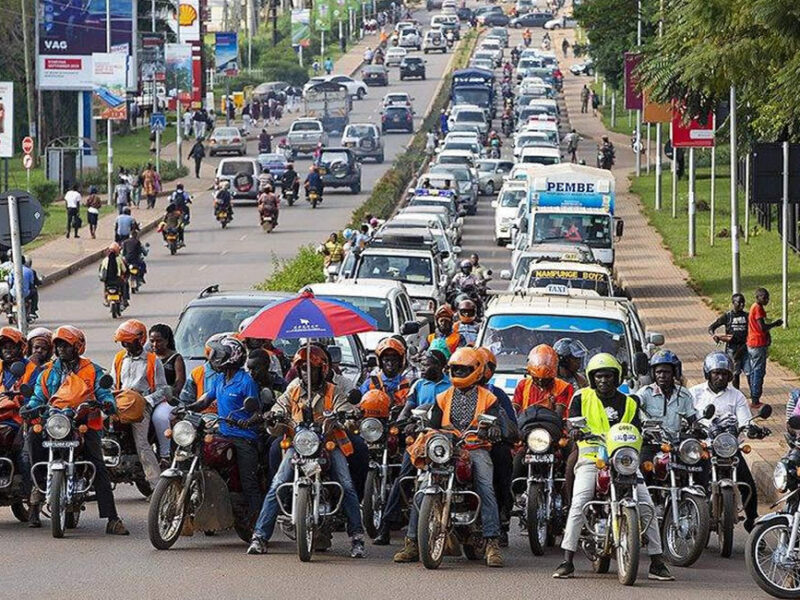Long-Term Self-Drive Rentals In Uganda
Self-drive rentals have gained considerable traction in many parts of the world, offering travellers the freedom and flexibility to explore destinations at their own pace. Uganda, with its rich wildlife, stunning landscapes, and vibrant culture, is no exception. For those interested in a more immersive experience, long-term self-drive rentals provide an ideal solution. This comprehensive guide delves into the prevalence of long-term self-drive rentals in Uganda, examining the factors that contribute to their popularity and the challenges involved.
Specific Terms And Conditions For Long-Term Rentals
When renting a vehicle for an extended period, such as several weeks or months, rental companies typically have specific terms and conditions that differ from those of short-term rentals. Understanding these terms is crucial to ensure a smooth rental experience and to avoid potential issues. Here are some common terms and conditions specific to long-term rentals:
- Rental Duration and Extensions
Minimum Rental Period: Many rental companies have a minimum rental period for long-term rentals. This period might vary but is often set at 30 days or more. Rentals shorter than this may be classified as short-term.
Extensions: If you need the vehicle for a period longer than initially agreed upon, you must request an extension before the current rental period expires. The rental company will usually offer options for extending the rental, but rates and availability might differ from the original agreement.
Early Termination: If you need to return the vehicle before the end of the agreed rental period, check the policy on early termination. Some companies may charge a fee or require a minimum notice period.
- Pricing and Payments
Discounts: Long-term rentals often come with discounted rates compared to short-term rentals. Discounts can vary based on the rental company, duration, and type of vehicle.
Payment Schedule: Rental companies may require payment upfront for the entire rental period. Ensure you understand the payment terms and any additional charges that may apply.
Deposit: A security deposit is typically required for long-term rentals. This deposit is refundable upon the return of the vehicle in good condition, minus any applicable charges for damage or excess mileage.
- Insurance and Coverage
Insurance Requirements: Long-term rentals generally require comprehensive insurance coverage, including third-party liability insurance. Verify what is included and whether you need additional coverage.
Insurance Costs: Insurance costs might be higher for long-term rentals. Ensure you understand the insurance terms and any additional fees for coverage extensions.
Exclusions: Be aware of any exclusions or limitations in the insurance policy, such as coverage for specific types of damage, use in certain areas, or additional drivers.
- Vehicle Maintenance and Repairs
Maintenance Responsibilities: The rental company typically covers routine maintenance, but you may be responsible for certain maintenance tasks, such as oil changes or tire replacements. Review the maintenance policy to understand your responsibilities.
Repairs: In the event of a breakdown or damage, contact the rental company immediately. The company will provide instructions for repairs and may arrange for roadside assistance if included in the rental agreement.
Condition of Vehicle: You are expected to return the vehicle in the same condition as when it was rented, minus normal wear and tear. Document the vehicle’s condition at the start and end of the rental period to avoid disputes.
- Usage Restrictions
Mileage Limits: Some long-term rentals have mileage limits, with charges for exceeding the limit. Ensure you understand the mileage policy and any associated costs for excess mileage.
Geographical Restrictions: Check if there are any geographical restrictions on where you can drive the vehicle. For example, some rental companies may restrict travel to certain regions or countries.
Off-Road Use: If you plan to use the vehicle for off-road driving or in rugged terrain, confirm with the rental company whether this is permitted and if any additional insurance or fees apply.
- Driver Requirements
Additional Drivers: Long-term rentals may allow for additional drivers, but they must be registered with the rental company. There may be an additional fee for extra drivers.
Driver’s License: Ensure that all drivers have a valid driver’s license recognized in Uganda. International drivers may need an International Driving Permit (IDP) in addition to their national license.
Age Restrictions: Some rental companies have age restrictions, requiring drivers to be a minimum age 25 years old and may charge additional fees for younger drivers.
- Fuel Policy
Fuel Charges: Understand the fuel policy, including whether the vehicle should be returned with a full tank of fuel. Rental companies may charge a refuelling fee if the vehicle is not returned with a full tank.
Fuel Types: Confirm the type of fuel required for the vehicle and ensure you use the correct type to avoid damage and additional charges.
- Vehicle Return and Inspection
Return Procedures: Follow the rental company’s procedures for returning the vehicle. This includes returning it to a specified location, completing any required paperwork, and allowing time for an inspection.
Inspection and Fees: The vehicle will be inspected upon return for any damage or excessive wear. Be aware of any fees that may be charged for damage or if the vehicle is returned with issues that were not documented at the start of the rental.
Late Return: If you return the vehicle late, there may be additional charges. Ensure you understand the late return policy and any fees that may apply.
- Cancellation and Refunds
Cancellation Policy: Review the rental company’s cancellation policy for long-term rentals. Some companies may have specific terms for cancelling or modifying a long-term rental agreement.
Refunds: If you cancel or return the vehicle early, check the policy on refunds or adjustments. Some deposits or prepaid amounts may be non-refundable or subject to cancellation fees.
- Special Considerations
Special Equipment: If you require additional equipment such as a roof tent, GPS, or child seats, confirm availability and any associated costs.
Local Regulations: Ensure compliance with local regulations, including any specific driving rules or requirements for long-term rentals in Uganda.
In conclusion, long-term self-drive rentals in Uganda offer an excellent way to explore the country at your own pace while benefiting from cost savings over time. With the flexibility to plan extended trips and the freedom to discover both popular and off-the-beaten-path destinations, long-term rentals are ideal for travellers seeking an immersive experience. Proper planning, vehicle maintenance, and understanding the terrain can ensure a rewarding and memorable journey across Uganda.


